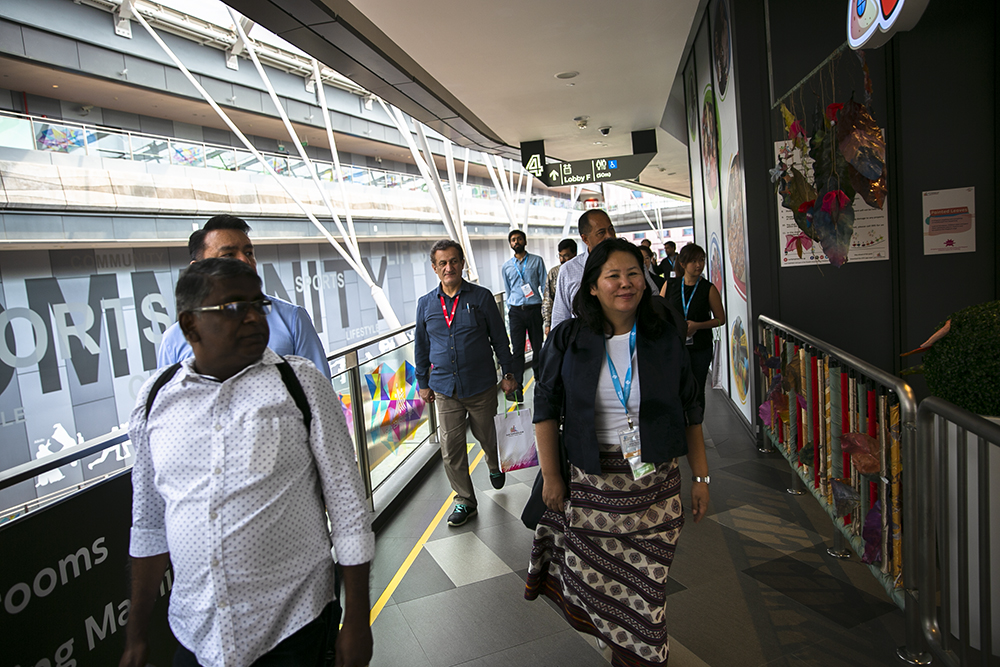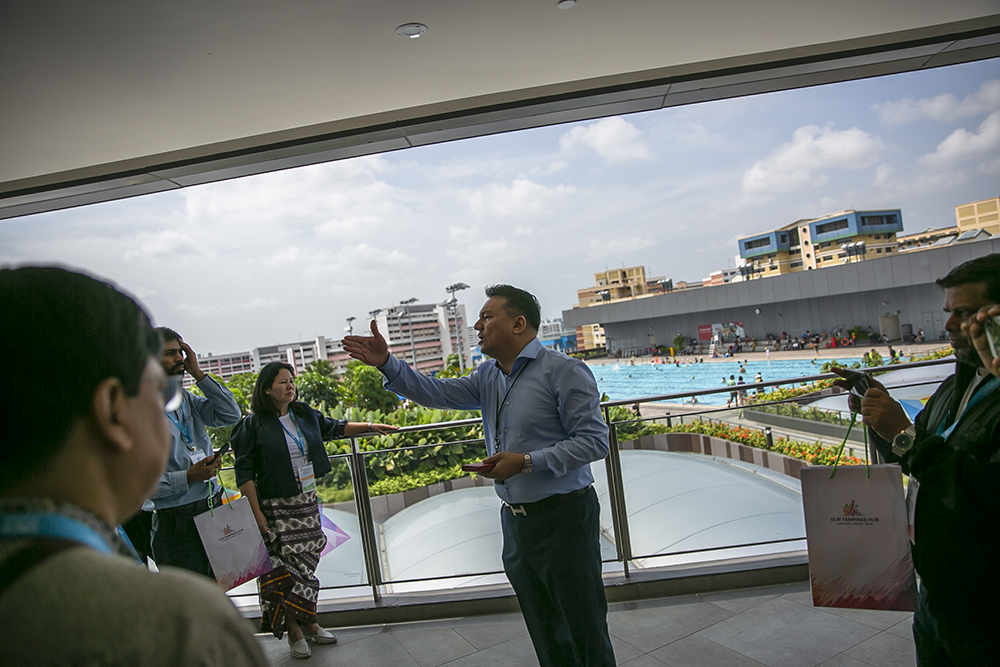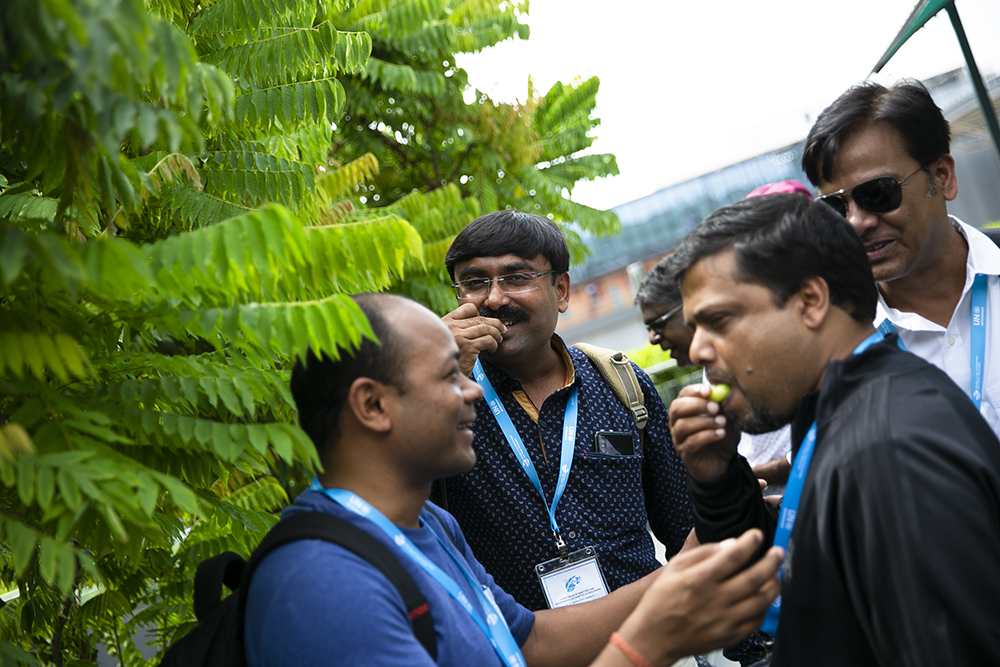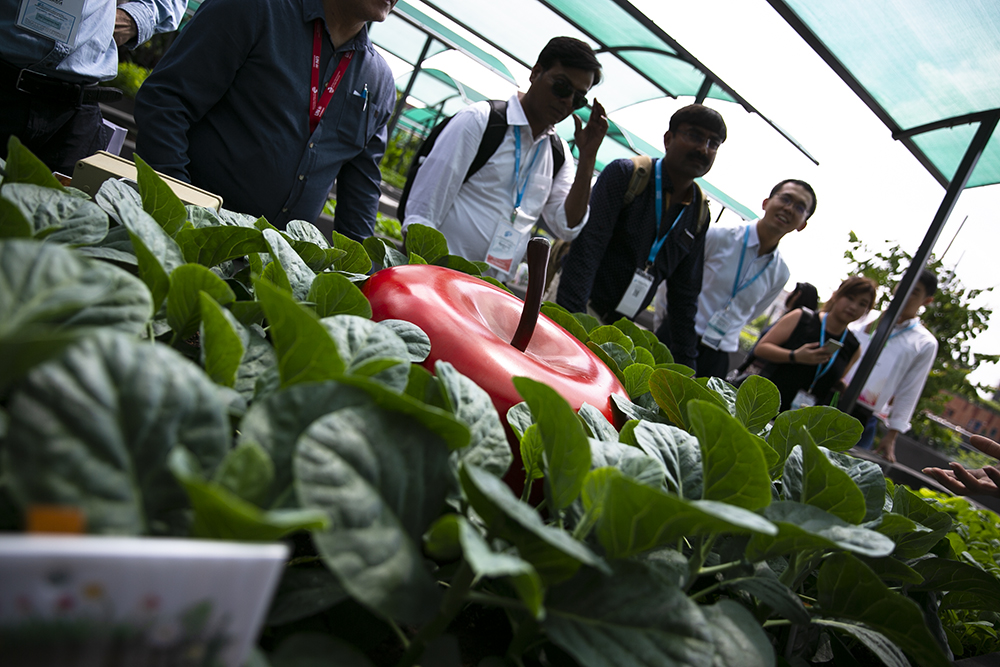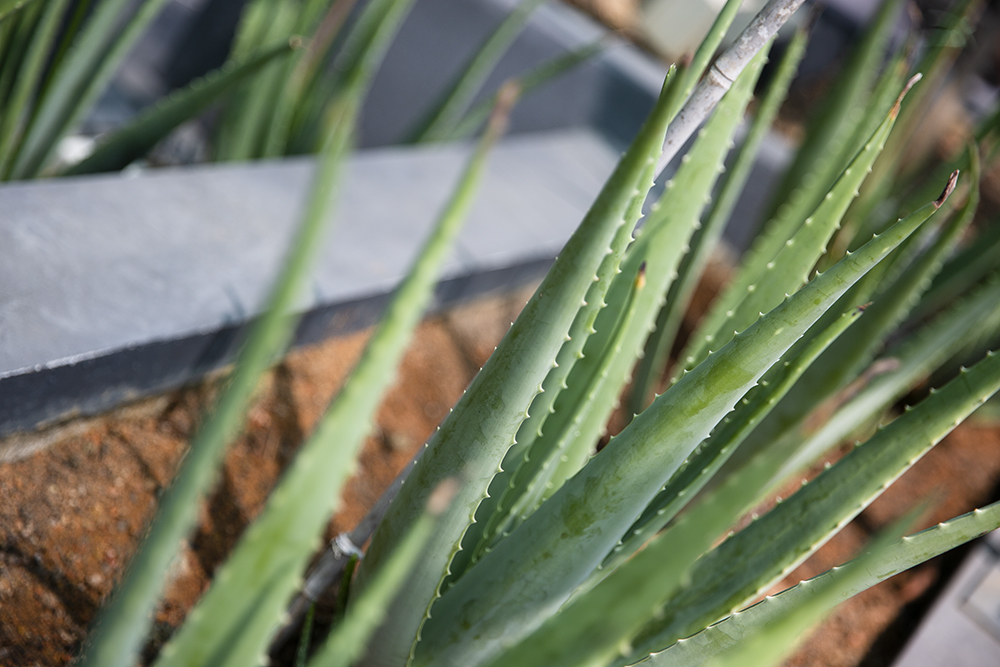Summary Highlights for 23-26 January 2019
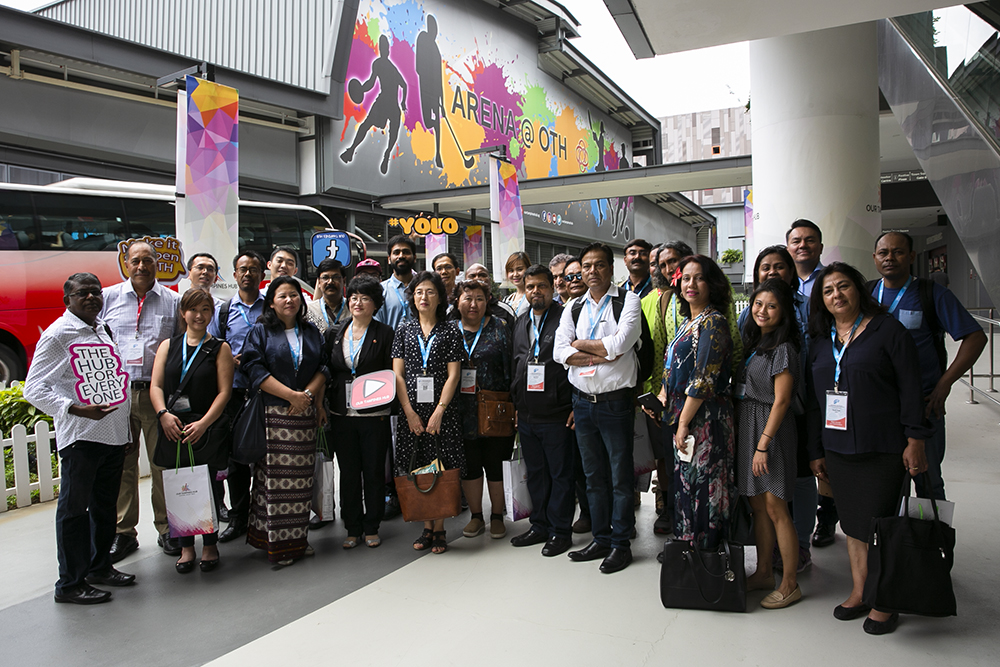
Participants on the field trip to 'Our Tampines Hub'
Delegates went out on field trips around Singapore on 26 January 2019, selecting from choices of the downtown reservoir Marina Barrage, the NEWater visitor centre on wastewater recycling, and the suburban ‘Our Tampines Hub.’
In Tampines, they viewed integrated community facilities for sustainable lifestyles, including an Eco-Digester Centre that can process up to 1.4 tons of food waste generated daily from the local hawker street food centre, cafes, restaurants, and supermarkets. Buildings in the Hub incorporate eco-labeled products, and tenants comply with the environmental and ‘green guide’ policies.
IISD Reporting Services, through its ENB+ Meeting Coverage, provided daily web coverage and a summary report from the 3rd Forum of Ministers and Environment Authorities of Asia Pacific, which is available in HTML and PDF.
Photos by IISD/ENB | Sean Wu
For photo reprint permissions, please follow instructions at our Attribution Regulations for Meeting Photo Usage Page
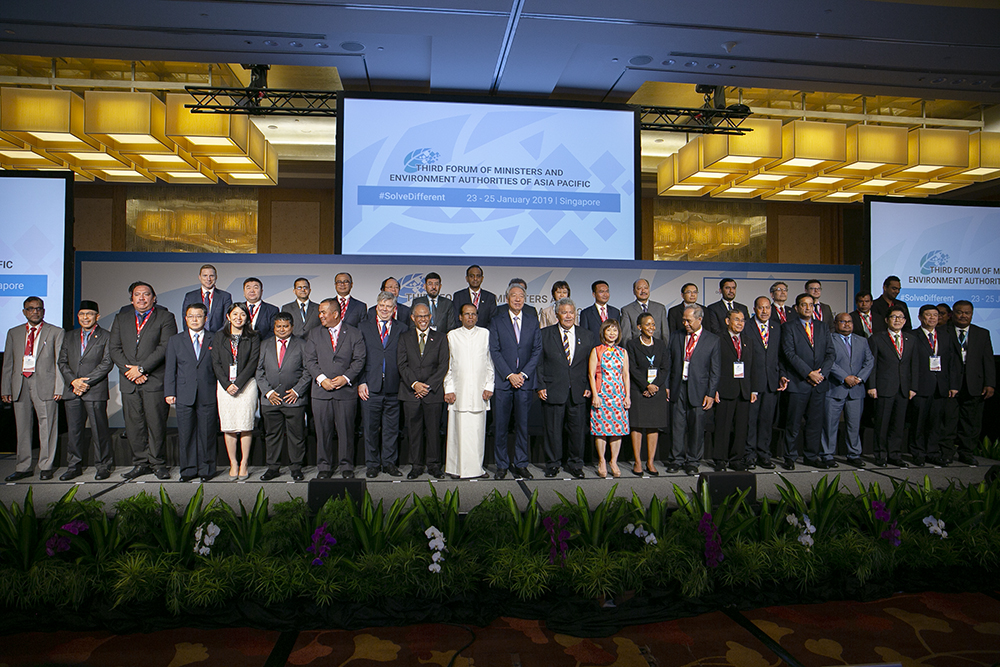
High-level delegates pose for a family photo
The Third Forum of Ministers and Environment Authorities of Asia Pacific entered its third and final day as ministers and high-level delegates met in plenary and two dialogue sessions on policy support and financing for innovative solutions for sustainable consumption and production (SCP).
Masagos Zulkifli, Minister of Environment and Water Resources, Singapore, welcomed delegates, and called for embracing a new form of economic growth that does not purely rely on resource exploitation, for example, through new industries that generate products from waste. Siim Kiisler, Minister of Environment, Estonia, and President of UNEA, outlined three main priorities for UNEA: to promote sustainable and efficient resource management; ensure the collection and use of environmental data; and support the meaningful engagement of civil society, the private sector, and academia.
In his keynote address, Teo Chee Hean, Deputy Prime Minister, Singapore, noted that solutions cannot only be achieved from the top down, and that, “every citizen has a part to play in putting us on a path to sustainable development.”
Maithripala Sirisena, President and Minister of Mahaweli Development & Environment, Sri Lanka, called for broader regional cooperation on environmental issues. Enele Sosene Sopoaga, Prime Minister, Tuvalu, drew attention to depletion of fish stocks, and called for creating an Asia-Pacific regional leaders’ sustainable development forum.
In discussions, many delegates highlighted national actions on SCP and innovative solutions, such as floating solar panels, road construction using plastic waste, and ‘zero-energy buildings.’ Several delegates highlighted issues of plastic waste and marine litter, and called for tax and policy incentives to promote more sustainable alternatives.
At the close of the day, delegates reviewed and adopted the report of the senior officials’ meeting of the previous day and the Chair’s summary of the ministerial segment, with minor amendments.
Cho Myung-rae, Minister of Environment, Republic of Korea, announced that his country will host the Fourth Forum of Ministers and Environment Authorities of Asia Pacific in 2020, ahead of UNEA-5. Zulkifli closed the meeting at 6:16 pm.
In the evening, delegates attended an official reception showcasing Singapore’s rich heritage of hawker street food, held at the downtown reservoir, Marina Barrage.
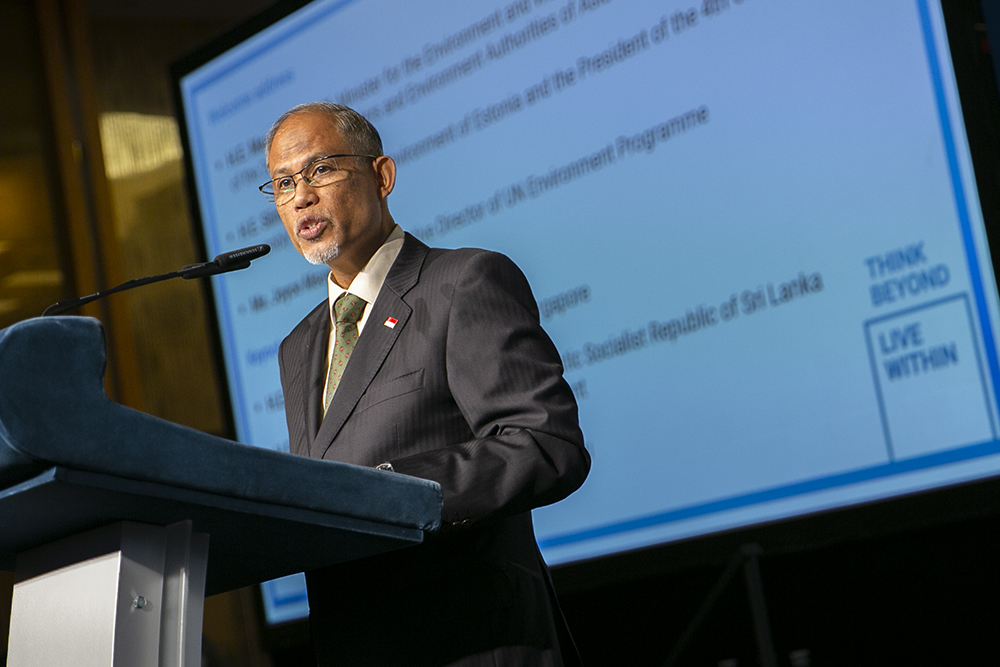
Chair Masagos Zulkifli, Minister for the Environment and Water Resources, Singapore
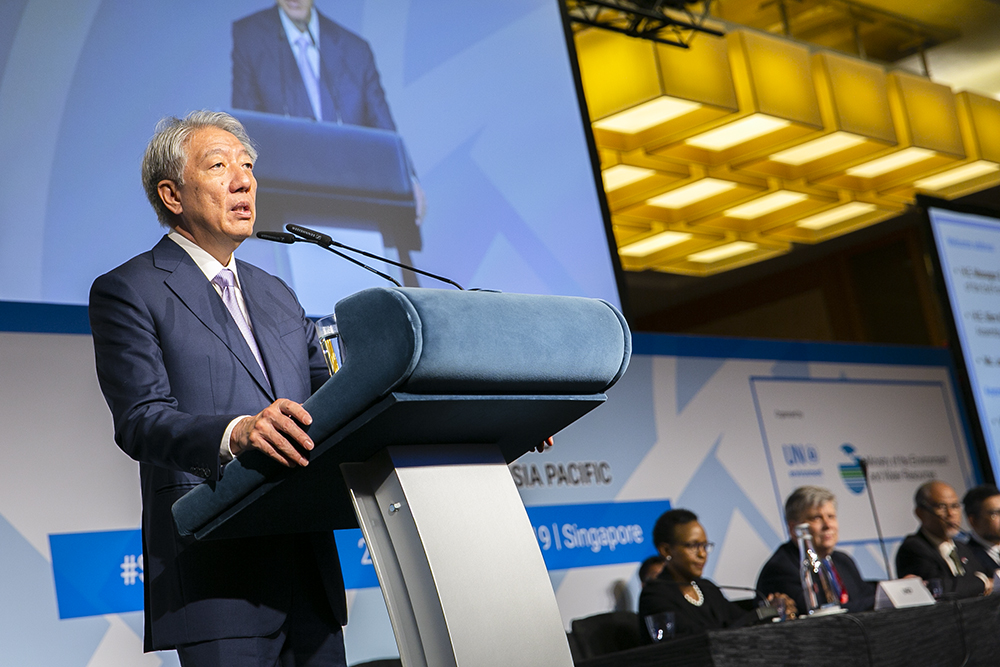
Teo Chee Hean, Deputy Prime Minister of Singapore
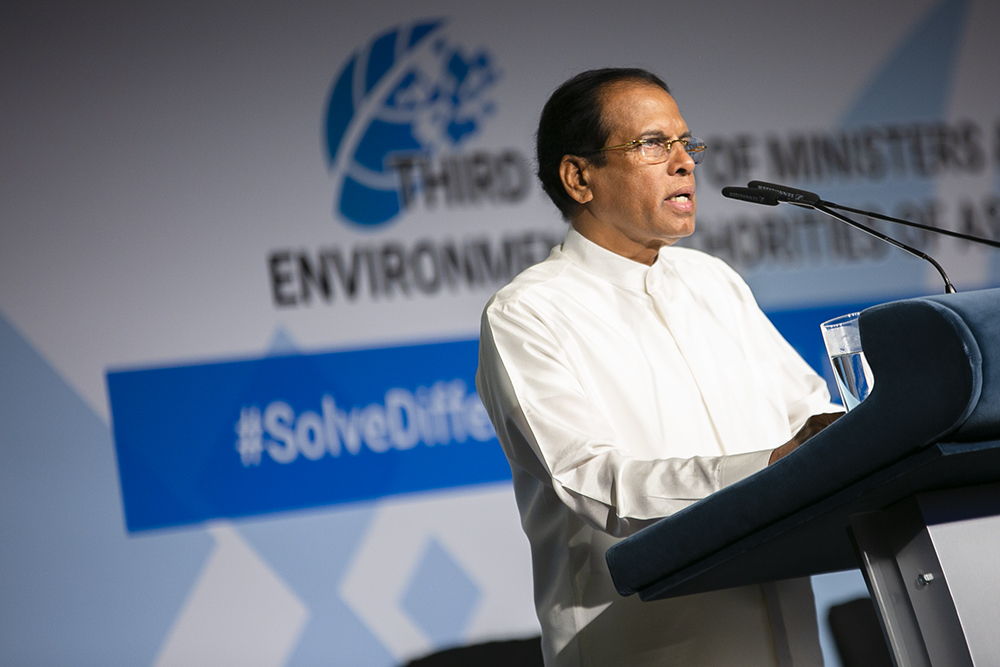
Maithripala Sirisena, President of Sri Lanka
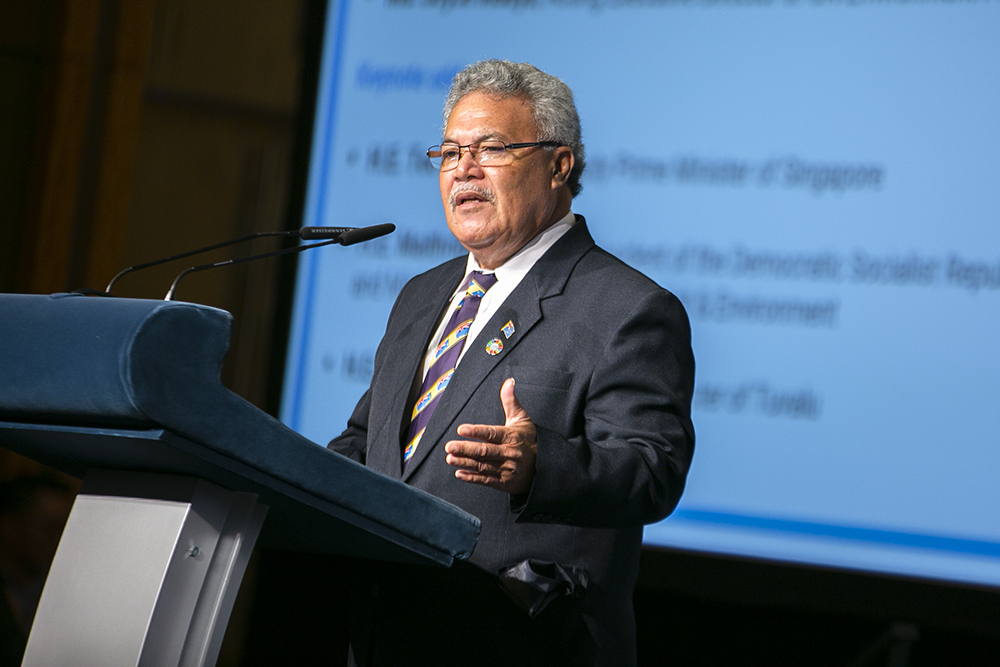
Enele Sosene Sopoaga, Prime Minister, Tuvalu
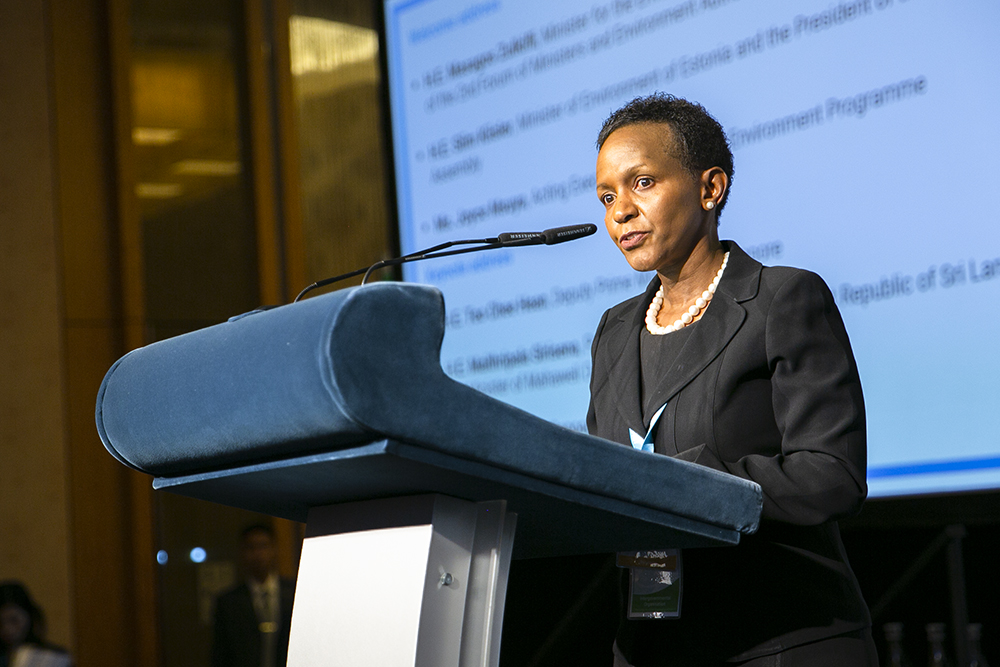
Joyce Msuya, Acting Executive Director of UN Environment, gives the closing remarks
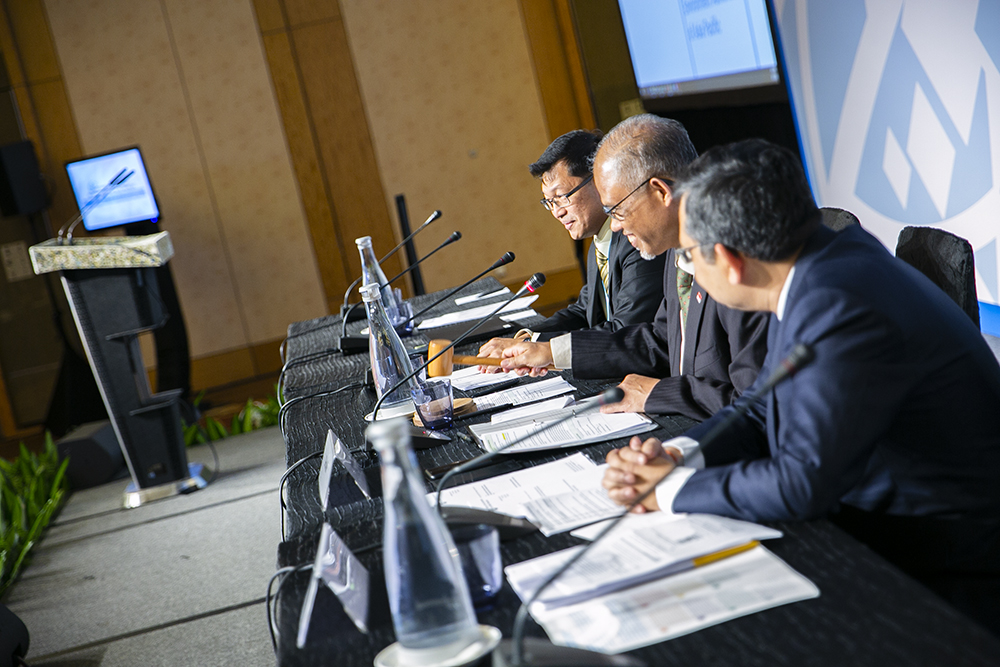
Chair Masagos Zulkifli, Minister for the Environment and Water Resources, Singapore, gavels the meeting to a close
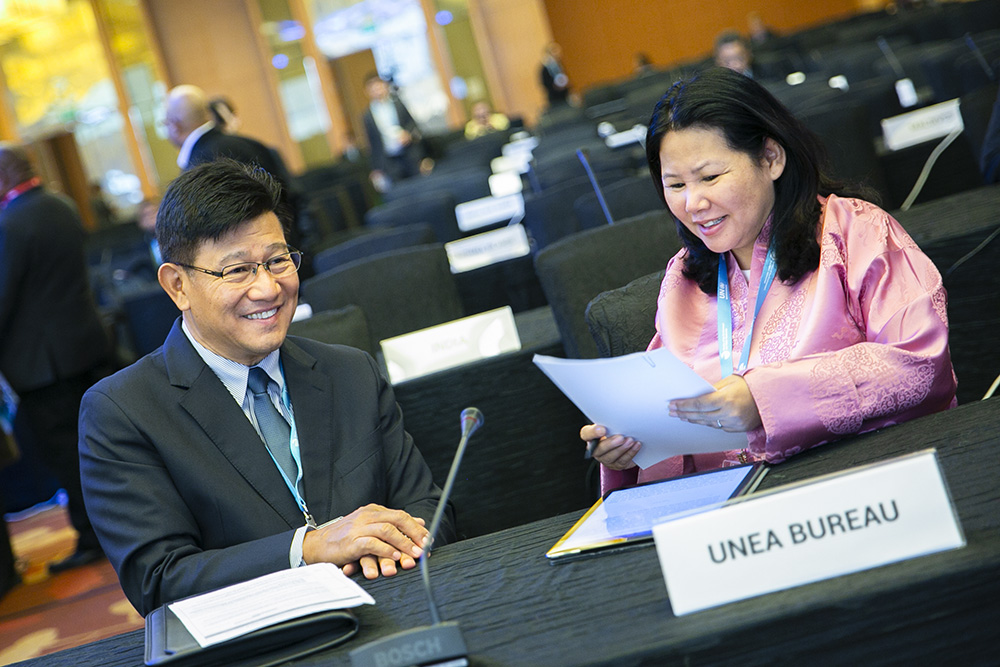
Ramon J.P. Paje, former Minister of Natural Resources and Environment, Philippines, and former Asia-Pacific Vice-President, UNEA-3 Bureau, in informal discussions with Dechen Tsering, Regional Director, UN Environment
Senior officials from the 41 Member States of UN Environment in the Asia-Pacific region met for all-day discussions. They first elected S.P. Singh Parihar, Ministry of Environment, Forest and Climate Change, India, as Chair of the session, as well as Joshua Wycliffe, Ministry of Water, Waste and Environment, Fiji, and Seong Su Ho, Ministry of Environment, Republic of Korea, as Vice-Chairs, and adopted the meeting agenda.
Amy Khor, Senior Minister of State for Health and for Environment and Water Resources, Singapore, welcomed delegates, calling for action on climate change and a shift from linear to circular economies. She noted that Singapore has declared 2019 its “year towards zero waste,” and highlighted its various recycling and circular economy initiatives.
Dechen Tsering, Regional Director, UN Environment Asia-Pacific, expressed appreciation for Member States’ ownership of this regional process, as the Third Forum is the first meeting in the process to take place outside of UN Environment’s regional headquarters in Thailand.
In the morning, Member States presented their actions in support of previous UNEA resolutions, with several countries mentioning the circular economy, resource efficiency, marine litter, and plastics pollution. Samoa announced that its national ban on single-use plastics, including straws, plastic bags, and Styrofoam items, will come into force on 30 January 2019.
In the afternoon, delegates deliberated on draft resolutions for UNEA-4 in March. Some countries emphasized the need for time-bound technology transfer and financing targets. They also provided input to the draft ministerial declaration to be adopted by UNEA-4. Finally, they endorsed a report of the day’s meeting.
Side events took place at lunchtime on: 'Catalyzing a Global Agenda on Adaptation to Climate Change: Exploring Transboundary Risks and Opportunities in the Asia Pacific Region'; and on 'Electrifying the Transport Sector to Beat Air Pollution.'
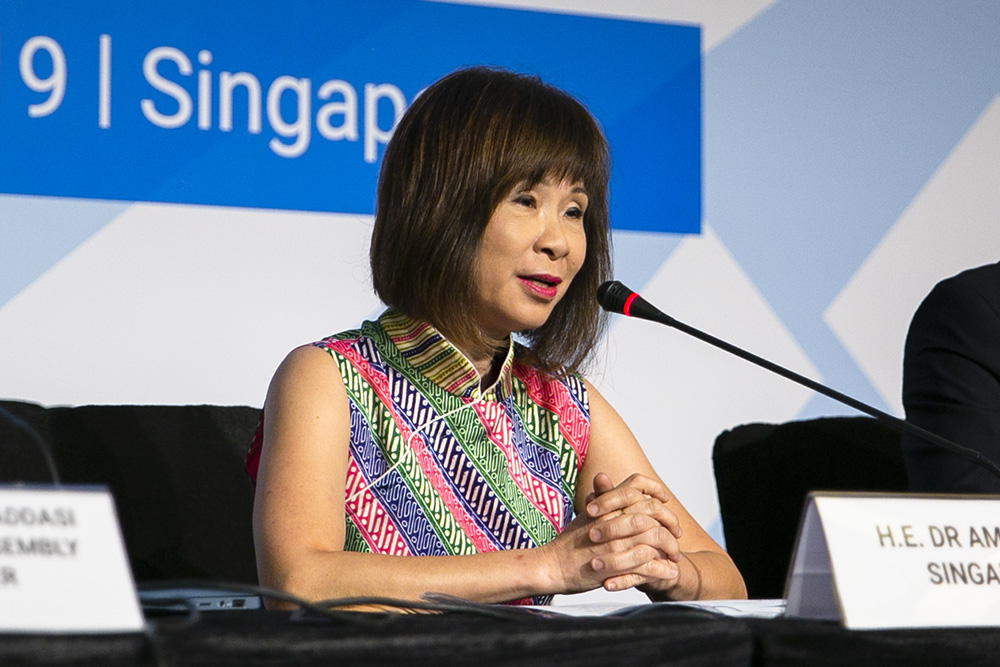
Amy Khor, Senior Minister of State for Health and Environment & Water Resources, Singapore
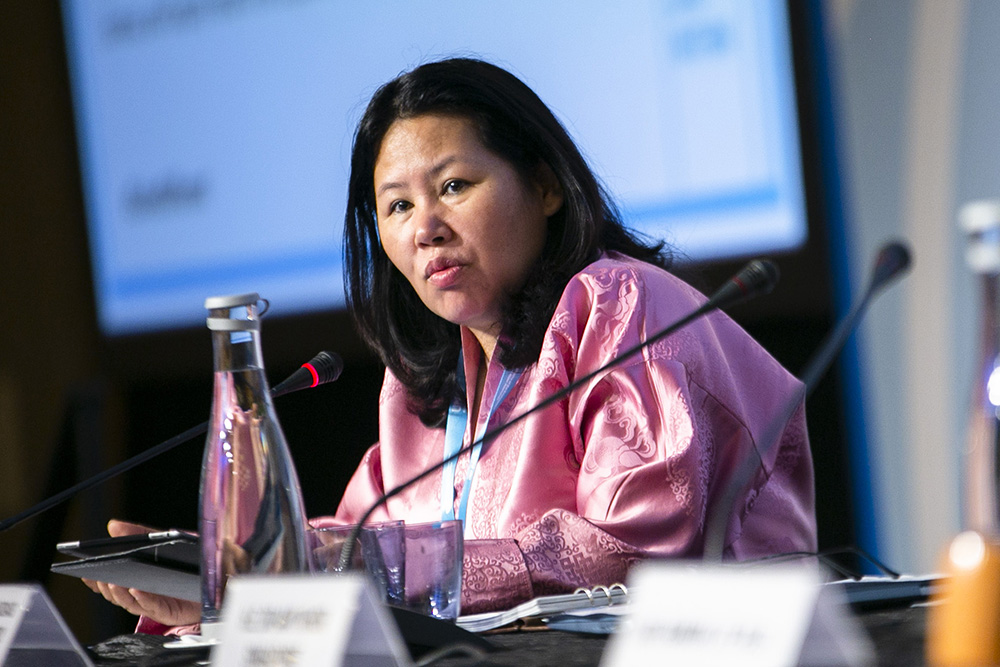
Dechen Tsering, Regional Director, UN Environment
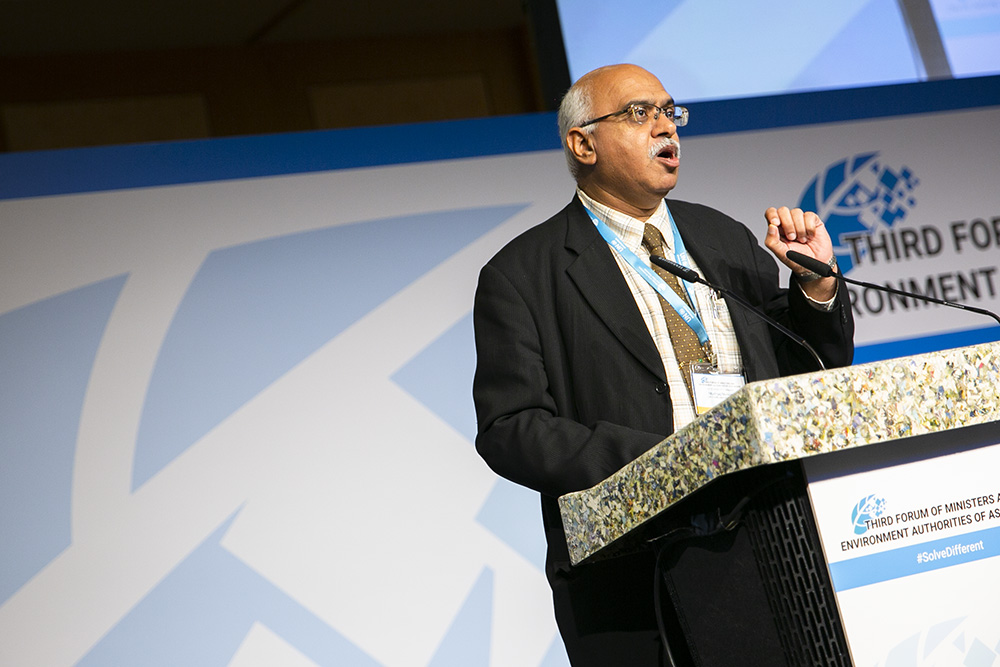
Mushtaq Memon, UN Environment
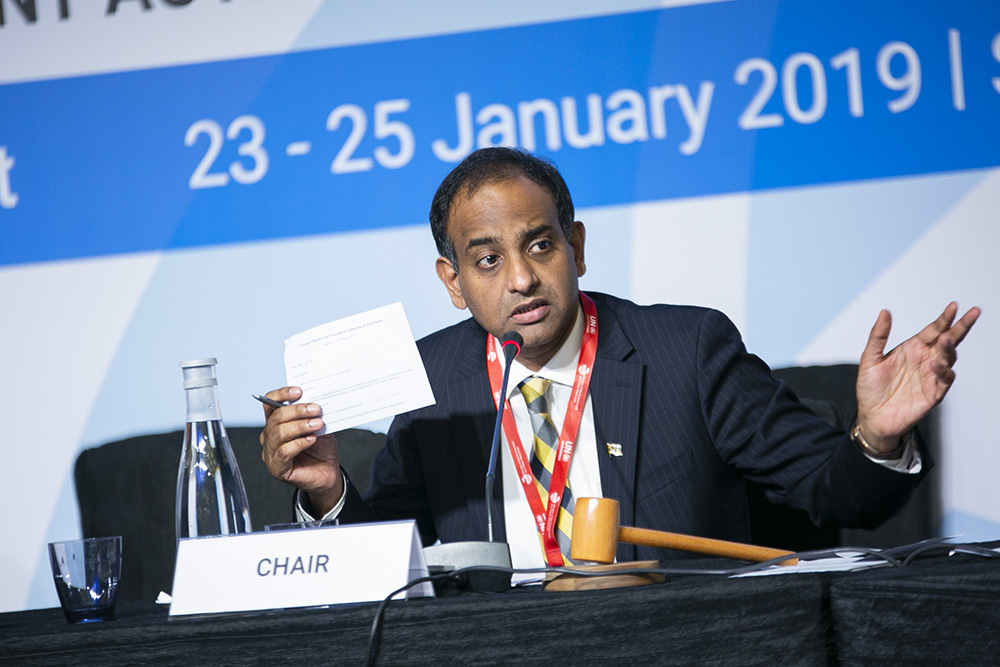
Chair Joshua Wycliffe, Ministry of Water, Waste and Environment, Fiji
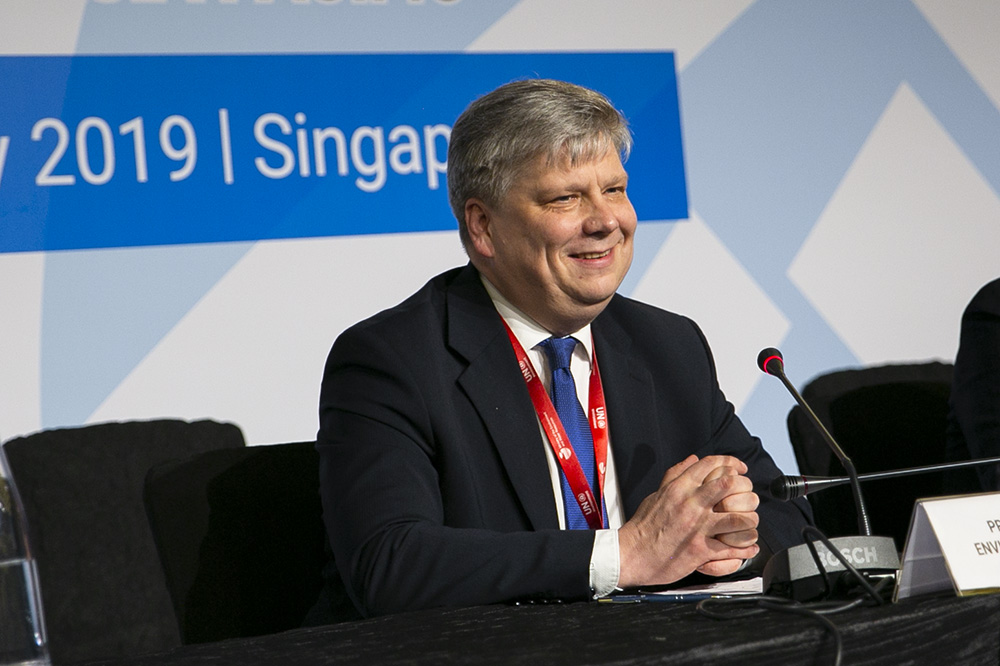
Siim Kiisler, President of UNEA and Minister of Environment, Estonia
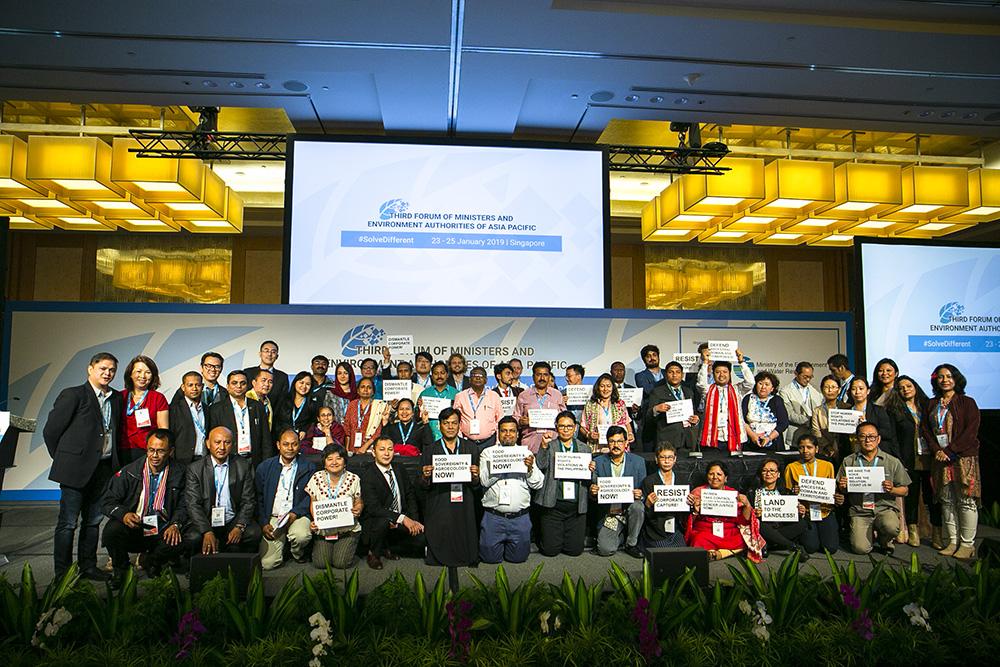
Delegates pose for a family photo on the first day of the conference
Major Groups and Other Stakeholders convened in Singapore, ahead of the senior officials’ meeting on 26 January and the high-level segment with environment ministers on 27 January. Discussions took place around the UN Environment Assembly (UNEA) 2019 theme, “Innovative solutions for environmental challenges and sustainable consumption and production (SCP).”
In the morning, Dechen Tsering, Regional Director, UN Environment Asia Pacific, emphasized the importance of civil society engagement with UNEA. Hazri Hussain, Permanent Representative to UN Environment, Singapore, highlighted Singapore’s aim of becoming a zero-waste nation. Indigenous rights activist and keynote speaker Joan Carling, Philippines, drew attention to the challenge of ensuring the poor and rural communities truly benefit from development. Two panel discussions took place, on people’s innovative solutions, and on nurturing nature through SCP.
In the afternoon, participants met in seven parallel workshops on agriculture, environmental challenges, systemic barriers, community partnerships, youth response, environmental governance, and just transition. In report-backs, they highlighted concerns including pesticide regulation, migration and labour rights, community conservation protocols, the governance of geoengineering, and climate change as “a burning issue” for youth.
In dialogue with UNEA President Siim Kiisler (Estonia), participants voiced concerns about access to UNEA negotiations. Kiisler announced a EUR100,000 grant from the Government of Estonia to support CSO travel to the Global Major Groups and Stakeholders Forum in Nairobi, Kenya, ahead of UNEA-4 in March.
Two side events took place at lunchtime, on the role of women in renewable energy, and on unleashing the power of youth in sustainable development. The Carnegie Climate Geoengineering Governance Initiative hosted an evening reception for all participants.
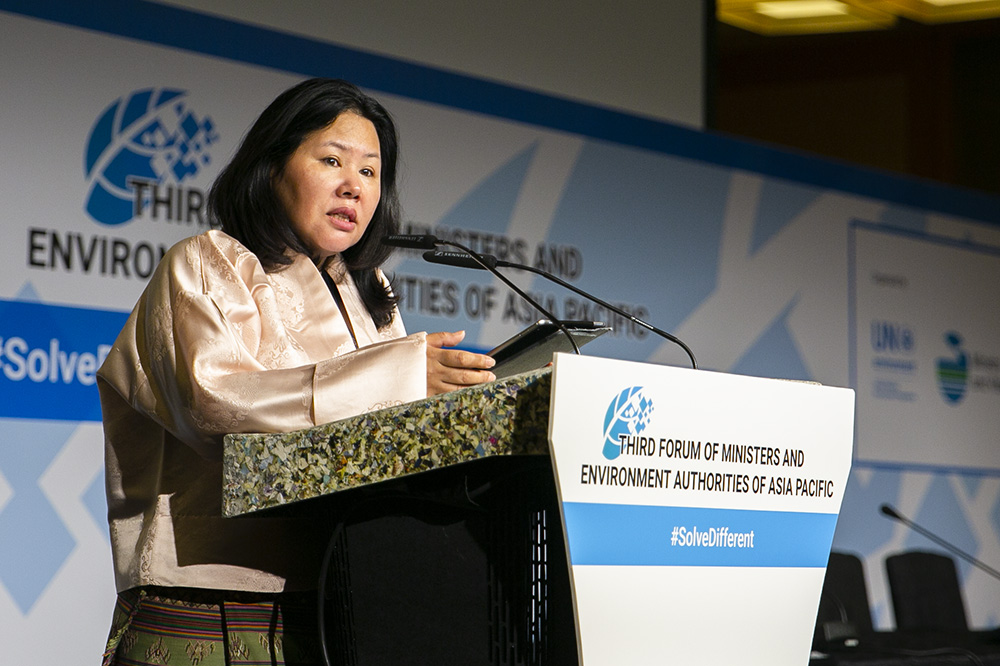
Dechen Tsering, Regional Director, UN Environment
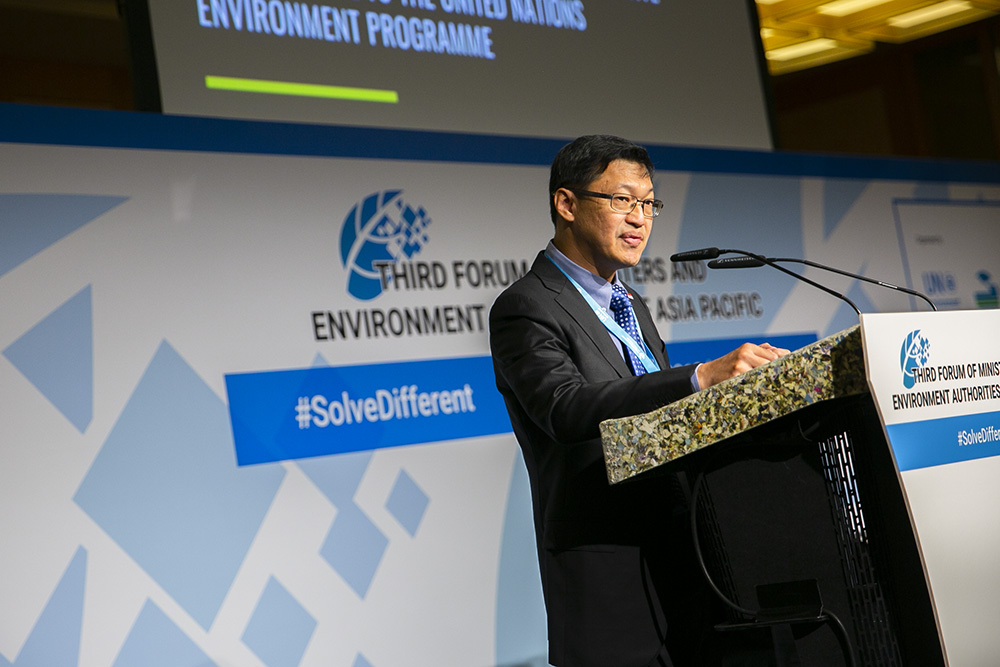
Hazri Hassan, Permanent Representative of Singapore to UN Environment
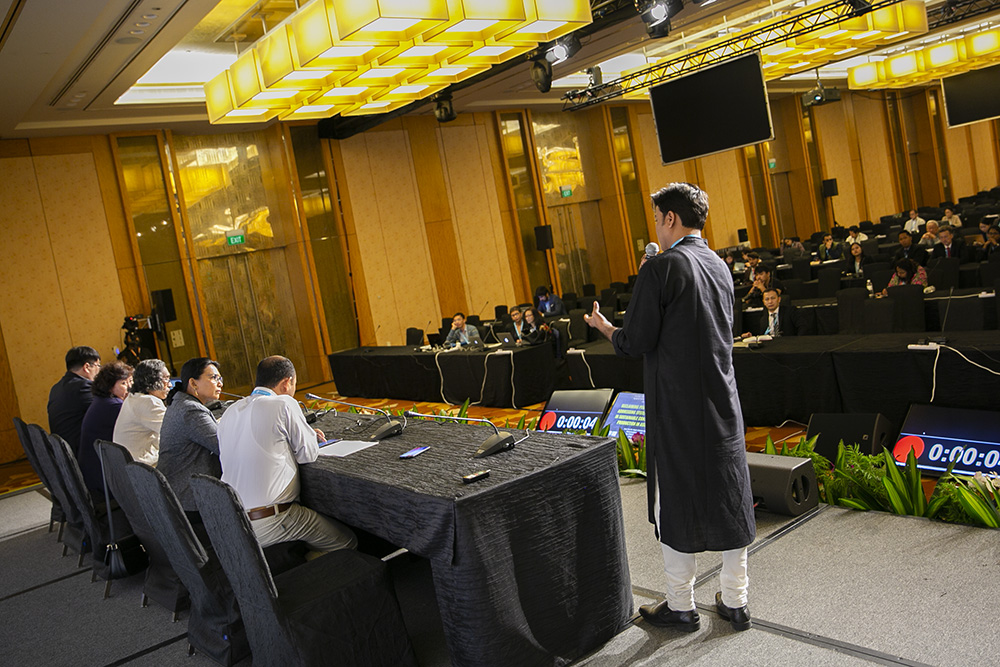
The dais during the session on “People’s Innovations to Address Environmental Challenges in Asia Pacific”
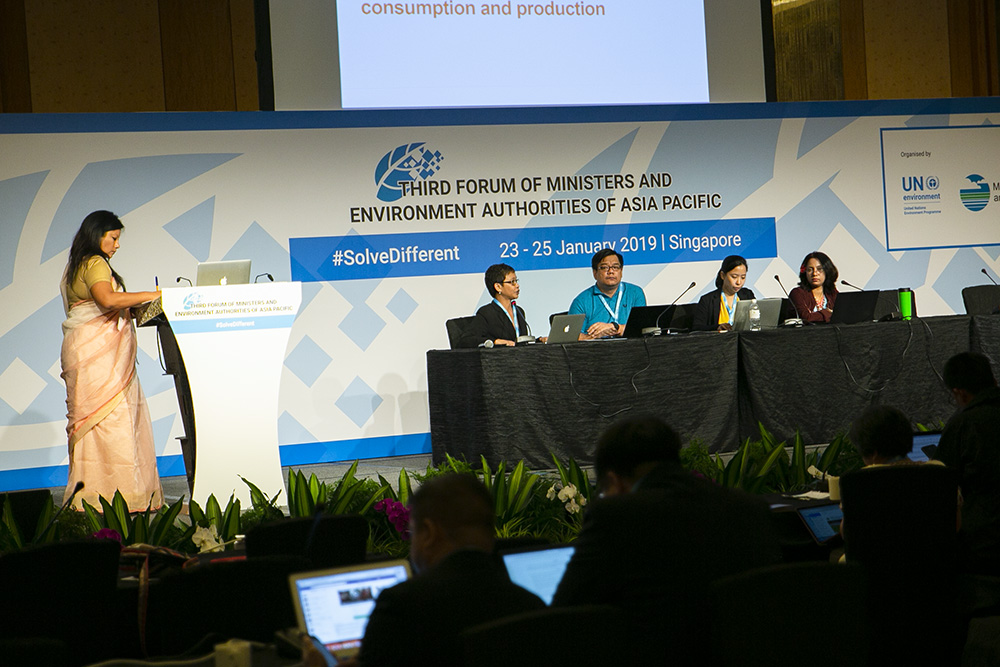
The dais during the session on nurturing nature through sustainable consumption and production

